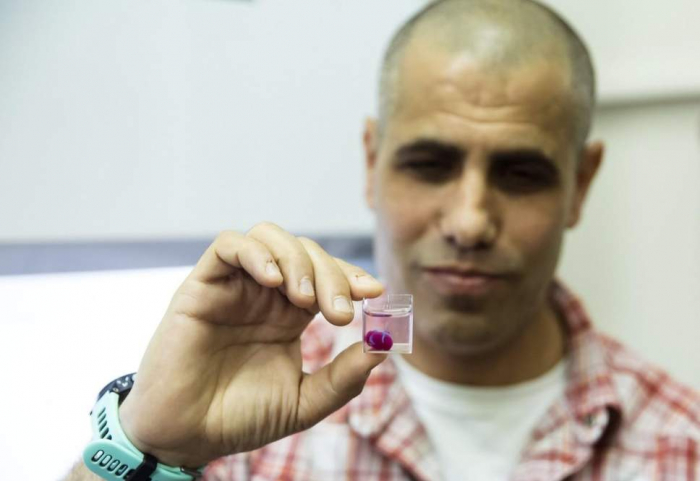They now believe that a full-sized human heart could one day be produced using the same technology – saving the lives of hundreds of people who die each year awaiting transplants.
Professor Tal Dvir, who led the research, said: “Maybe in 10 years there will be organ printers in the finest hospitals around the world, and these procedures will be conducted routinely.”
His team now hope to stimulate the printed heart into functioning like a real one. The cells are currently able to contract, but not yet have the all-important ability to pump.
Once this is done, the organ will be transplanted into an animal in a move to further understand the way both the body and heart reacts to such operations.
Speaking at a news conference on Monday, Professor Dvir added: “People have managed to 3D print the structure of a heart in the past, but not with cells or with blood vessels. This heart is made from human cells and patient-specific biological materials.
“In our process, these materials serve as the bioinks, substances made of sugars and proteins that can be used for 3D printing of complex tissue models.
“Our results demonstrate the potential of our approach for engineering personalised tissue and organ replacement in the future.”
Cardiovascular disease is the world’s leading cause of death, according to the World Health Organization, and transplants are currently the only option available for patients in the worst cases.
But the number of donors is limited and many die while waiting.
The Independent
More about: 3Dprintedheart
















































